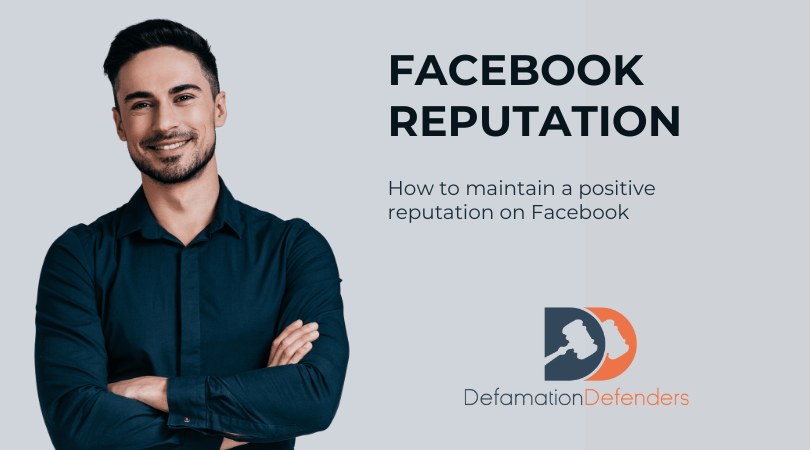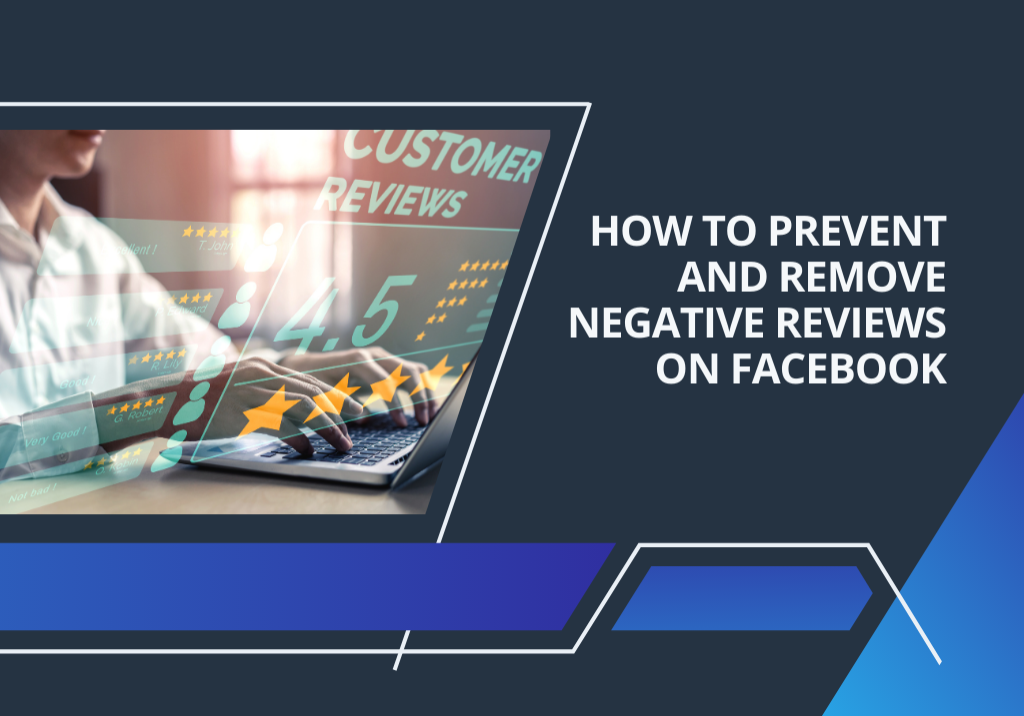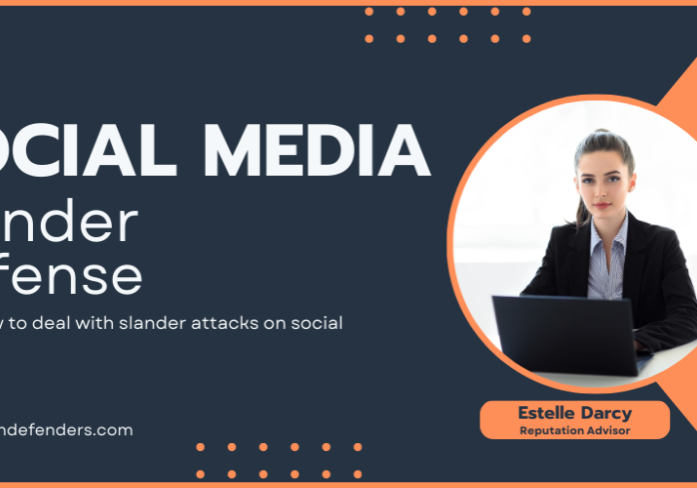
Table of Contents
How to Maintain a Positive Facebook Reputation in the Age of Cancel Culture
In a world where one wrong move on social media can lead to cancellation, maintaining a positive Facebook reputation has become more crucial than ever. With the rise of cancel culture, individuals and businesses alike are finding themselves in the crosshairs of public scrutiny. But fear not! In this blog post, we will explore effective strategies to navigate the treacherous waters of online judgment and safeguard your Facebook reputation. From crafting authentic content to engaging with your audience strategically, join us as we unravel the secrets to thriving amidst cancel culture's unforgiving gaze. It's time to take control of your virtual identity and ensure that positivity reigns supreme in every corner of your Facebook presence!
Introduction to the Challenges of Maintaining a Positive Facebook Reputation in the Age of Cancel Culture
Maintaining a positive Facebook reputation is more important than ever in the age of cancel culture. With the rise of social media, people are quick to jump to conclusions and judgment without all the facts. This can lead to a person or business being "canceled" or blacklisted for something they didn't do, or for something that was taken out of context.
Here are some basic tips for maintaining a positive Facebook reputation:
- Be careful what you post. Think before you post, and consider how your words might be interpreted. If you wouldn't say it in real life, don't say it online.
- Monitor your comments section. If someone leaves a negative comment, take the time to respond calmly and professionally. Don't engage in arguments or name-calling.
- Take advantage of privacy settings. You can control who sees your posts and comments by using the privacy settings on Facebook. Use them to your advantage.
- Know when to take a break. If you're feeling overwhelmed by negative comments or trolls, it's okay to take a break from social media. Step away from your computer and take some time for yourself. You don't have to be active on social media 24/7.
The Dangers of Negative Posting
When it comes to negative posting on Facebook, there are a few things to keep in mind. First and foremost, consider the source. If someone you don't know or trust is trying to spread negativity about you or your business, take it with a grain of salt. Secondly, remember that anything you post on Facebook can be seen by anyone, including potential employers, customers, and future business partners.
If you do find yourself the victim of negative posts, don't panic. The best thing you can do is respond calmly and professionally. If the posts are coming from a legitimate source, address the issue head-on. If not, simply ignore them. Don't stoop to their level by engaging in a back-and-forth argument; it will only make you look bad.
Take steps to prevent negative postings in the first place by regularly monitoring your Facebook page and delete any inflammatory comments or posts as soon as you see them. A little proactive effort can go a long way in maintaining a positive reputation on Facebook.
Common Mistakes People Make on Facebook
There are a number of common mistakes people make on Facebook that can damage their reputation. Here are some of the most common:
- Posting inflammatory or offensive content: This is perhaps the most obvious way to damage your reputation on Facebook. If you post something that is racist, sexist, homophobic, or otherwise offensive, you will likely face a backlash from other users. This can lead to your account being suspended or even banned.
- Engaging in flame wars: If you get into arguments with other users on Facebook, it will reflect poorly on you. Not only will other users see you as someone who is difficult to get along with, but it will also make you look unprofessional.
- Posting too much personal information: While it’s great to share aspects of your life with friends and family on Facebook, you should be careful not to share too much personal information. This includes things like your home address, phone number, and financial information.
- Posting spam: No one likes seeing spam on their Facebook feed, so avoid posting it yourself. This includes things like promotional posts for products or services, chain letters, and fake news articles.
- Being impersonal: One of the best ways to connect with others on Facebook is by being personal and engaging with them. If you simply post updates without interacting with others, you’ll come across as being cold and distant.
Best Practices for Creating Content and Engaging on Social Media
When it comes to keeping your social media profiles and presence clean, it’s important to remember that what you post can have a lasting impact on your reputation – for better or for worse. In the age of cancel culture, it’s more important than ever to be mindful of the content you share and the way you engage with others online.
Here are some best practices for creating content and engaging on social media:
Think before you post: Take a moment to consider how your words might be interpreted before hitting “post” or “send.” Once something is out there, it can be difficult to take back.
Be respectful: Treat others online the way you would want to be treated yourself. Be polite and respectful in your interactions, even if you disagree with someone. Remember that there’s a real person on the other end of every social media interaction.
Think about your audience: Who are you trying to reach with your content? Keep your audience in mind when creating and sharing posts, and tailor your content accordingly.
Avoid hot-button topics: If you wouldn’t bring up a certain topic in person, it’s probably best to avoid it online as well. Steer clear of touchy subjects like politics or religion to avoid offending anyone.
Be positive: Social media should be a positive experience for both you and your followers. Share things that make you happy and avoid negativity and other common social media mistakes where possible.
Strategies for Handling Negative Comments or Criticism
The age of cancel culture has made it more important than ever to maintain a positive Facebook reputation. If you're not careful, one negative comment or piece of criticism can spiral out of control and damage your business or personal brand.
There are a few strategies you can use to handle negative comments or criticism on Facebook:
- Acknowledge the issue and apologize if needed. This shows that you're taking responsibility for the situation and are willing to make things right.
- Try to resolve the issue privately. If the person is open to communicating privately, message them directly or give them a call. This gives you a chance to address their concerns directly without airing dirty laundry publicly.
- Ignore it. Sometimes the best course of action is to simply ignore negative comments or criticism. If it's not warranted or constructive, there's no need to engage with it.
- Delete it and/or block the person. If someone is repeatedly leaving negative comments or spamming your page, you have the right to delete their comments and/or block them from your page altogether.
Establishing and Maintaining Boundaries
It's no secret that social media can be a breeding ground for negativity and drama. With the rise of cancel culture, it's more important than ever to be mindful of what you post on Facebook (or any other platform). Here are some tips for maintaining a positive reputation on Facebook:
1. Be aware of your audience. Who are you trying to reach with your posts? Make sure your content is appropriate for them.
2. Don't post anything you wouldn't want your boss or future employer to see. Once it's out there, it's hard to delete it or take it back.
3. Be thoughtful about the language you use in your posts. Avoid inflammatory or offensive language that could come back to haunt you later.
4. Keep personal and professional separate. If you're not comfortable sharing something personal on your Facebook page, don't do it!
5. Use privacy settings to control who sees your posts. You can limit your posts to friends only, or even create separate groups for different audiences.
6. Take a break if you need to. If you're feeling overwhelmed by negative comments or drama, take a step back and take some time offline.
Conclusion
Maintaining a positive reputation on Facebook is more important than ever in the age of cancel culture. With just a few simple steps, you can protect your online presence and ensure that you are seen in only the best light by potential employers, family members, friends, and other stakeholders. It's essential to keep an eye on what people are saying about you and how it could potentially impact your reputation. Being mindful of these tips will help you maintain a positive Facebook reputation now and into the future.
Want more social media reputation defense strategies?
Our blog is packed full of useful information on keeping your reputation clean on social media and across the web. Check out our reputation management blog to start educating yourself on DIY solutions to improve online image build a strong brand reputation with social media. Take a look at the posts below to get started.






